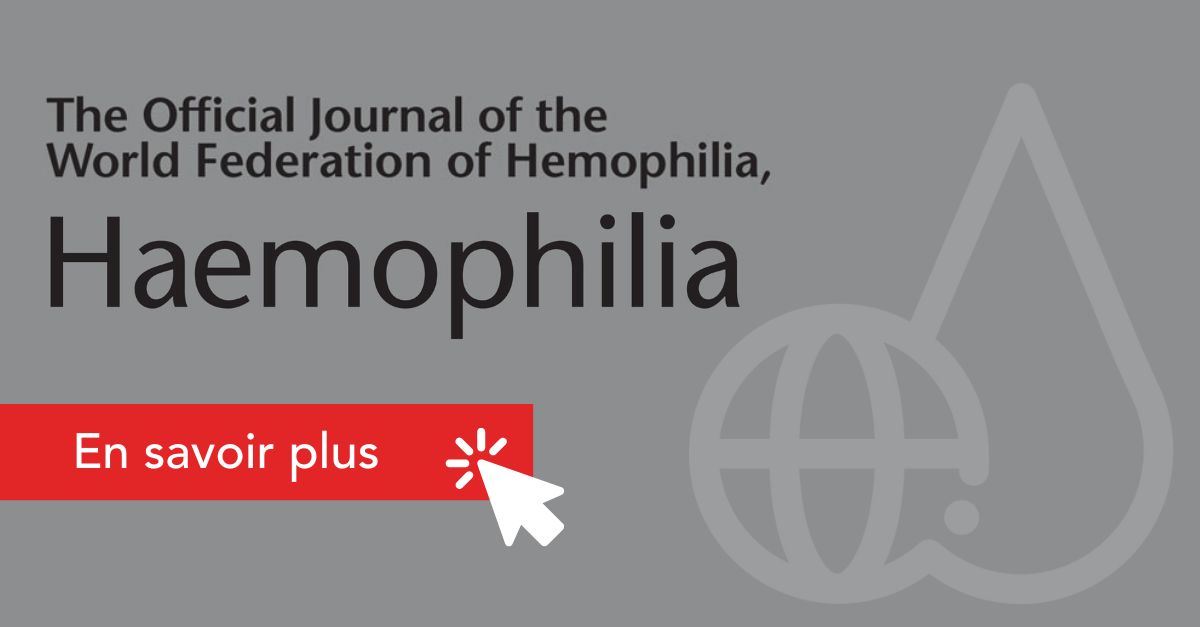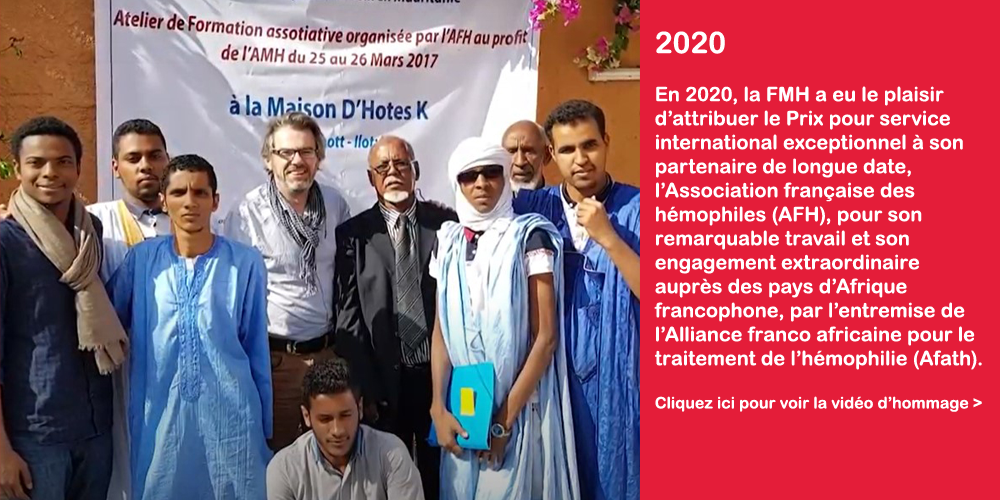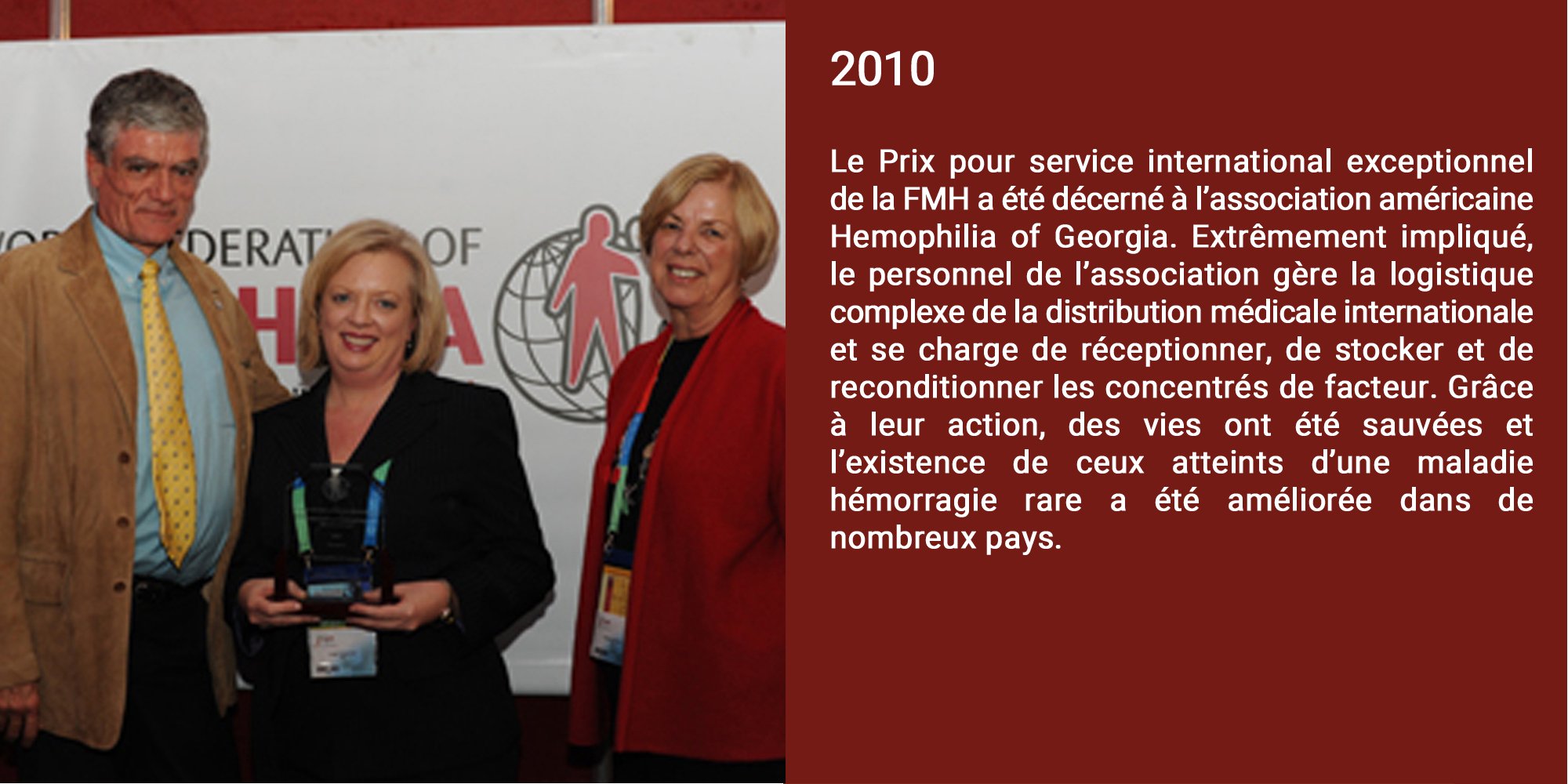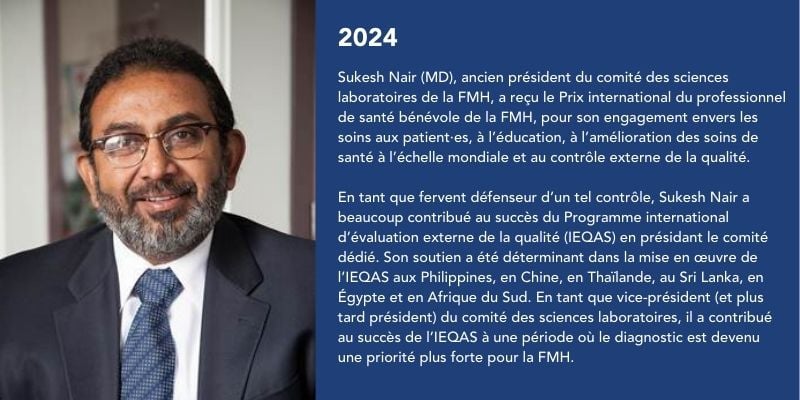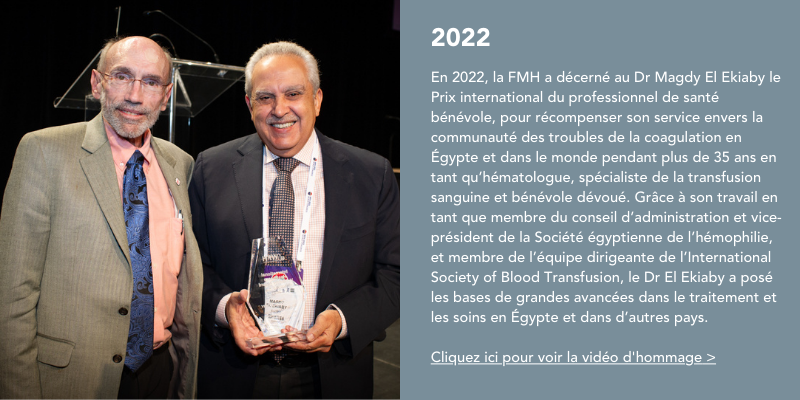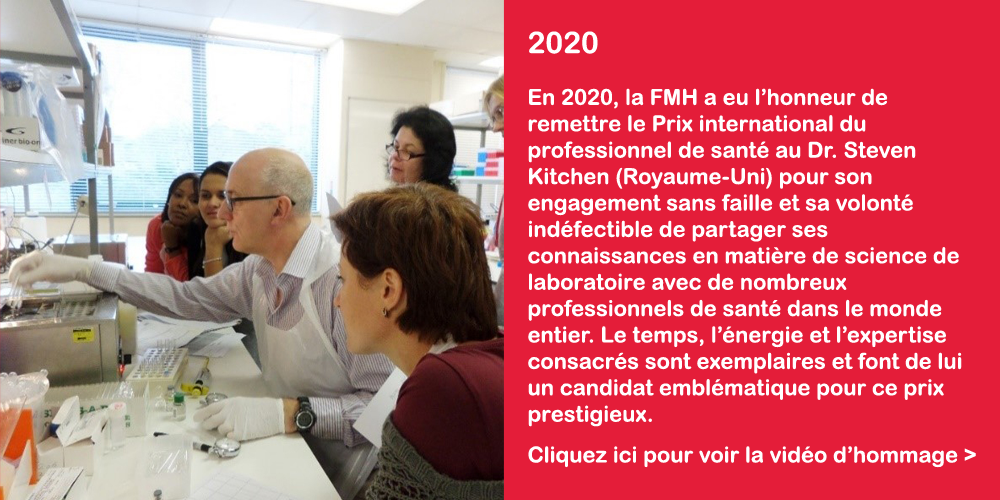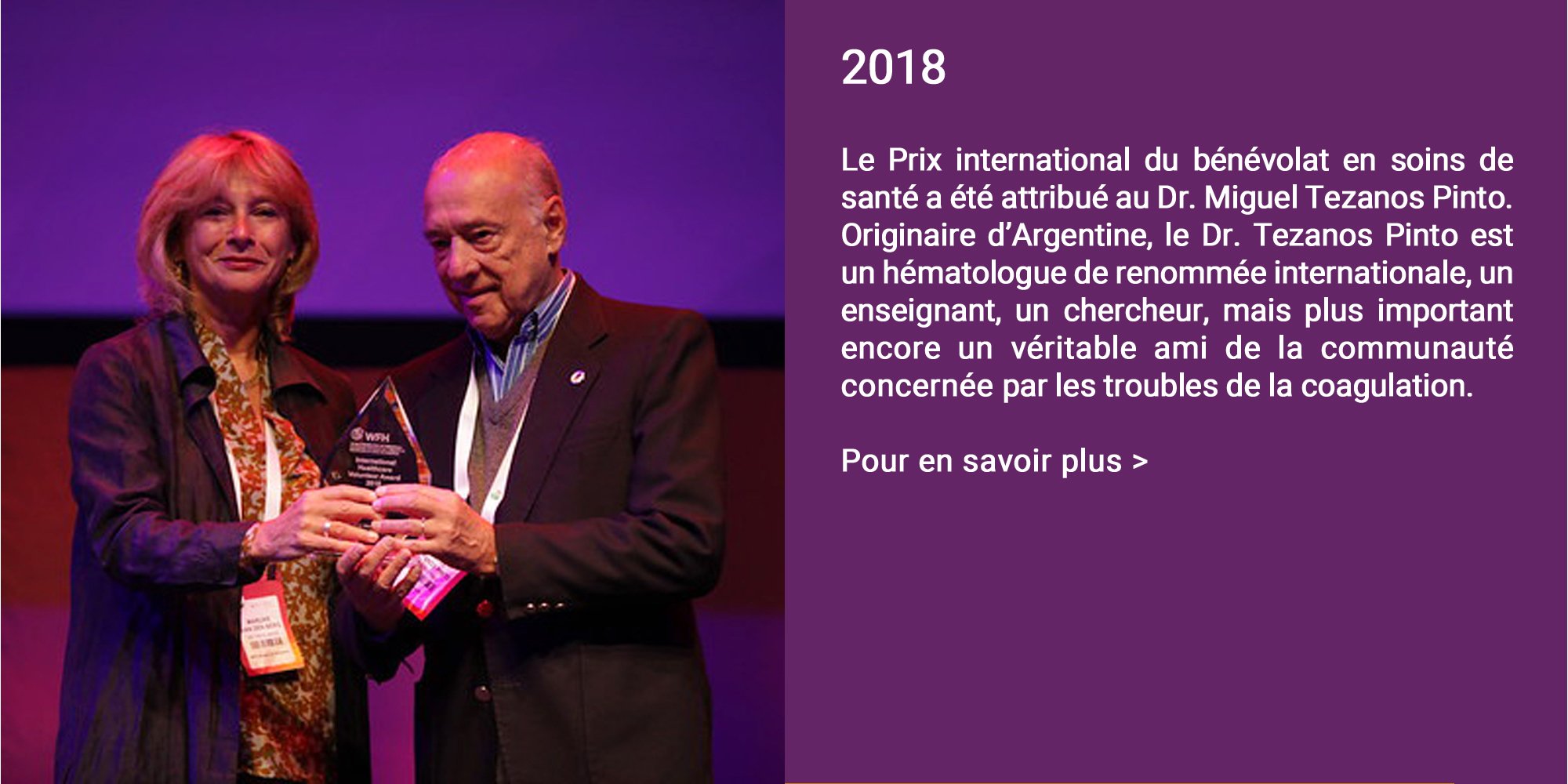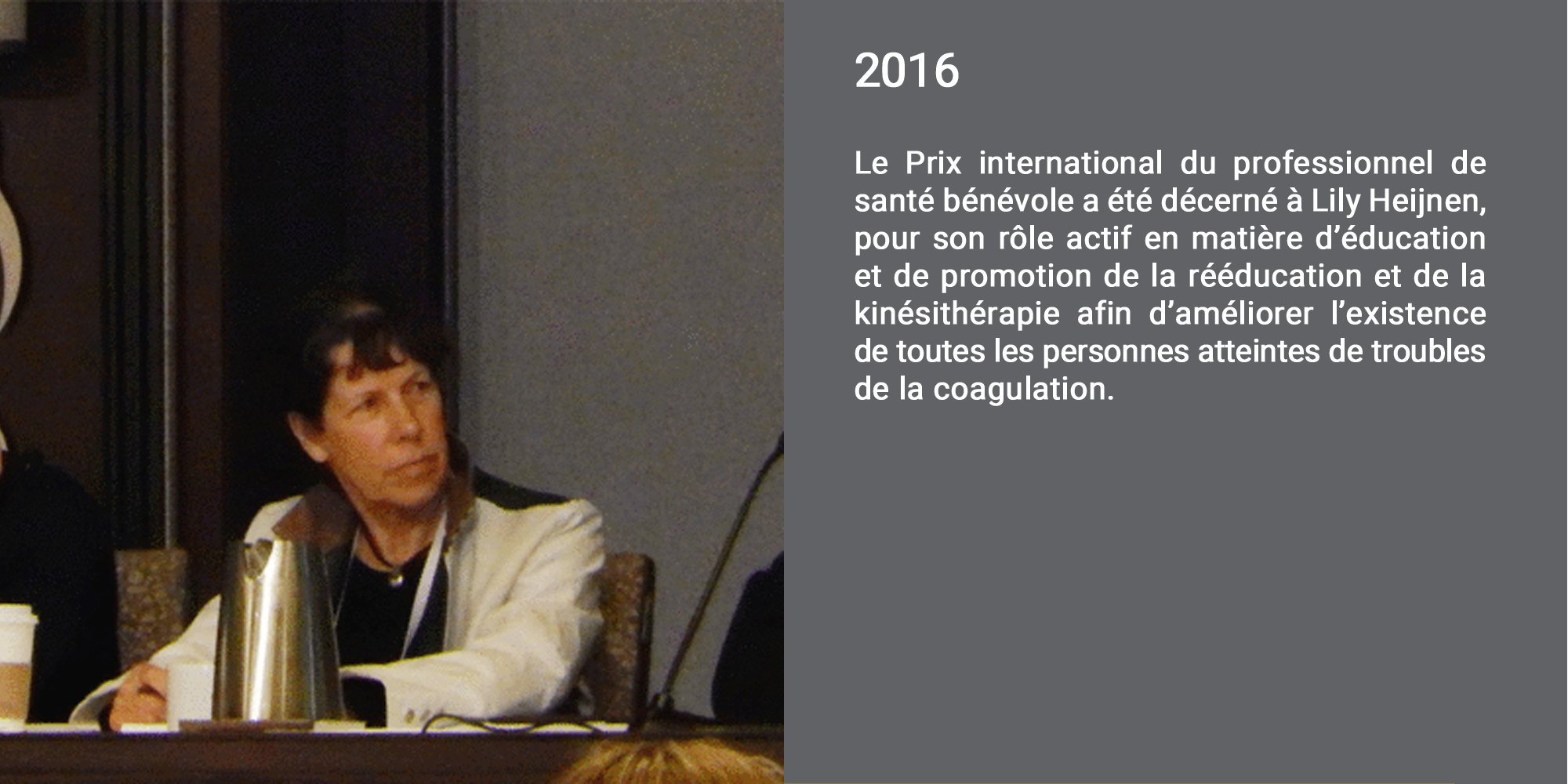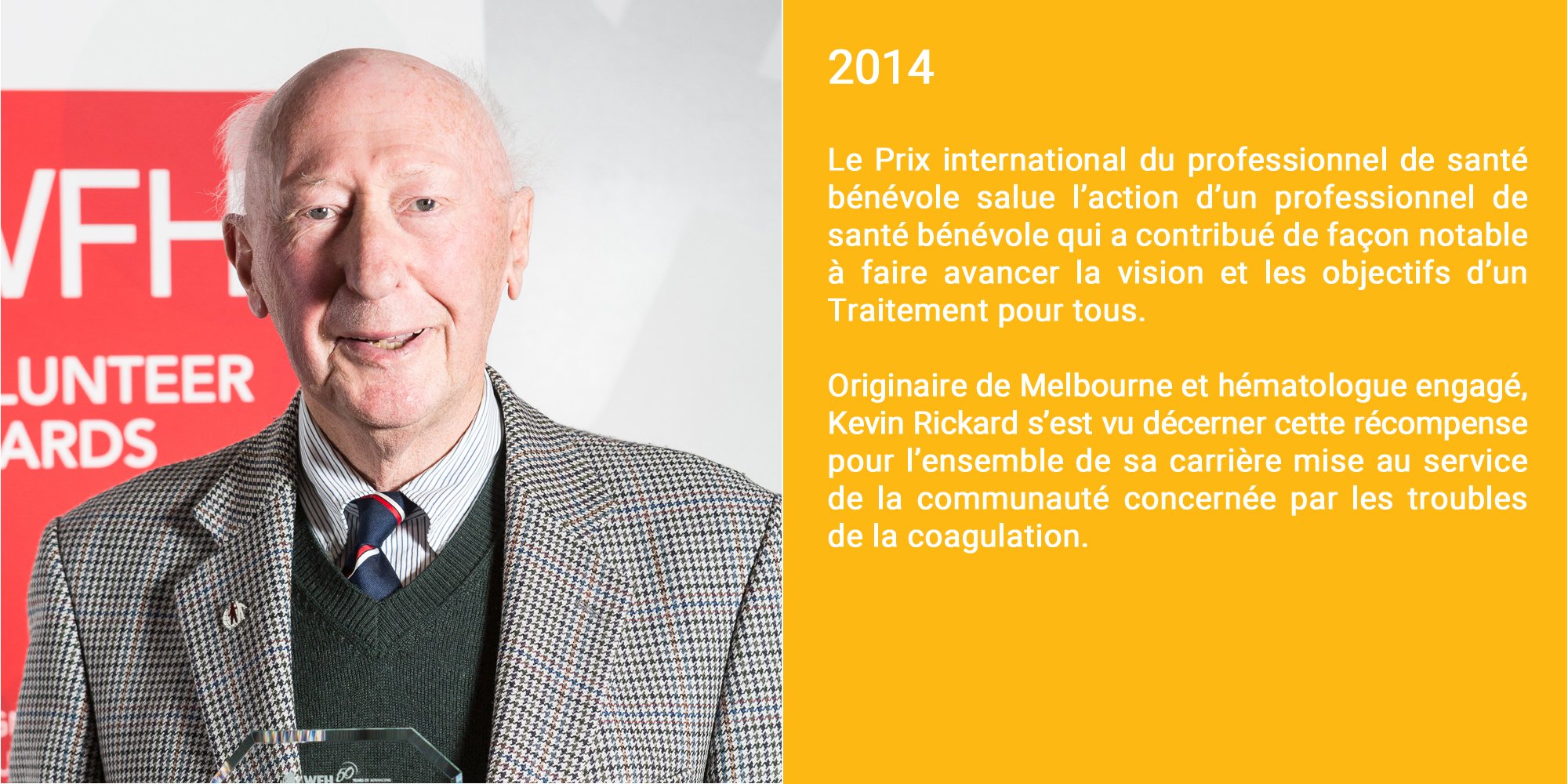La Fédération mondiale de l’hémophilie (FMH) surveille de près la fabrication, la sécurité et l’approvisionnement des thérapies de l’hémophilie pendant la pandémie de coronavirus. La FMH publiera toutes les lettres reçues de la part des compagnies pharmaceutiques à ce sujet, et ne saura être tenue pour responsable de leur contenu, y compris en cas d’oubli ou d’erreur dans les communications publiées. Toutes les lettres seront publiées telles qu’elles ont été reçues de la part des fabricants.
Novo Nordisk
15 mai 2020
To all physicians, haematologists, and other healthcare professionals
It has become apparent in the recent weeks that COVID-19 patients with severe disease may develop associated coagulopathy, similar to disseminated intravascular coagulopathy (DIC).
The most common pattern of coagulopathy observed in patients that require hospitalisation due to severe COVID-19 is characterised by elevations in fibrinogen and D-dimer levels, correlating with a rise in inflammation markers.
In many hospitals, low-molecular-weight heparin is routinely used in these patients for thromboprophylaxis.
It is recommended to monitor platelet count, D-dimer, fibrinogen, and PT/aPTT.
How this may affect haemophilia patients that become infected with the novel coronavirus SARS-CoV-2 is so far unknown.
However, we would like to raise awareness that monitoring of the above recommended coagulation parameters can be influenced by the type of coagulation product that a haemophilia patient is using. Specifically, Refixia®/Rebinyn® (nonacog beta pegol, N9-GP), a modified Factor IX product used for the treatment of haemophilia B, is known to interact with the reagents used for the aPTT analysis causing either erroneous shortening or prolongation of clotting time (1).
The following table lists common coagulation assays that may be used to diagnose and monitor patients with COVID-19-associated coagulopathy and indicates whether these assays may be affected by Refixia®/Rebinyn®, providing potential alternatives, where possible. This information is in line with the Refixia®/Rebinyn® Prescribing information/ EU SmPC.
If a haemophilia B patient on Refixia®/Rebinyn® requires treatment for COVID-19, we recommend to proactively inform the treating healthcare provider about their factor IX treatment and provide them with the below table for increased awareness of its impact on coagulation assays.
| Assay/Analyte | Interference with Refixia® |
Recommended alternatives |
| aPTT | Yes (over/under-estimation of clotting potential when using silica-based aPTT reagents), avoid if possible |
– Chromogenic anti-Xa assay |
| PT | No | |
| D-dimer | No | |
| Fibrinogen (Clauss method or PT-derived) | No | |
| FIX activity (one-stage-clotting aPTT based) | Yes | – Chromogenic FIX assay – aPTT assays: SynthAFax® or Cephascreen® |
| FIX activity (chromogenic) | No | |
| Antithrombin activity | No | |
| Protein C assay (aPTT based) | Yes | Chromogenic Protein C assay |
| Protein C assay (chromogenic) |
No |
Reference:
Rosén P, Rosén S, Ezban M, et al. J Thromb Haemost 2016;14:1420–1427
https://onlinelibrary.wiley.com/doi/full/10.1111/jth.13359
According to the EU SmPC, Refixia® is indicated for treatment and prophylaxis of bleeding in patients 12 years and above with haemophilia B (congenital factor IX deficiency).
Please refer to your local Refixia® Prescribing Information for more information, including details on the Safety Profile, listing of known Adverse Reactions and how to report suspected adverse reactions.
Takeda
21 mai 2020
Follow-up statement relating to SARS-CoV-2 – CoVIg-19 Plasma Alliance news and update on supply of plasma-derived therapies and recombinant products for persons with hemophilia and von Willebrand disease (VWD)
Further to our previous correspondence, we would like to provide an update on the CoVIg-19 Plasma Alliance, as well as supply of Takeda’s plasma-derived therapies and recombinant products for persons with hemophilia and VWD, as the SARS-CoV-2 outbreak continues.
Last week we announced some important progress regarding the continued expansion and activities of the CoVIg-19 Plasma Alliance, the plasma industry collaboration recently established to accelerate the development of a plasma-derived hyperimmune globulin therapy for COVID-19. We are working hard with our Alliance members and other large organizations outside of the plasma industry to amplify awareness and encourage convalescent plasma donations from anyone who has recovered from COVID-19. The full announcement and details of these efforts can be accessed here, along with further information on the CoVIg-19 Plasma Alliance website. The success of the CoVig-19 program depends heavily right now on the support of people across the world to donate convalescent plasma. We therefore encourage you to help us raise awareness among your member organizations and the people they represent. If there is a way that we can support you appropriately to make that happen, please do not hesitate to let us know.
In terms of the supply of our treatment, since our last update we continue to monitor how the pandemic situation is evolving and how it impacts our global supply chain. We would like to reassure you that we continue to foresee no near-term disruption in the planned supply of our products, including plasma-derived therapies and recombinant products for persons with hemophilia and VWD. We manufacture certain products in our own facilities within our global manufacturing network, in addition to sourcing certain other products from over 130 qualified third-party contract manufacturers within our global network. Specifically for our plasma-derived therapies, all of our plasma collection centers remain open and we are pleased to share that our planned expansion is still on track, with 23 new centers opening across the US and Europe throughout the rest of the year. We will continue to provide you with updates as needed.
As always, our top priority is to do all we can to make sure our medicines and services continue to reach the individuals who rely on them, while we protect the health of our employees, those who work alongside them, their families and our communities.
Should you have additional questions, please contact:
Tineke Zuurbier, Global Patient Advocacy, Rare Hematology [email protected]
Groupe de travail de la FMH sur le COVID-19
11 mai 2020
Radek Kaczmarek and Glenn Pierce, Co-chairs; Assad Haffar, Cedric Hermans, Barbara Konkle, Brian O’Mahony, David Page, Flora Peyvandi, Steve Pipe, Mark Skinner
In response to a request for information on the potential interaction between the coagulopathy associated with some COVID-19 cases and new hemostatic agents (in clinical development or recently approved), the WFH has received replies from the 5 companies queried. Please find below a summary of the replies received from these pharmaceutical companies. Full letters are available on the WFH website.
Collectively, the companies give us assurance they are being vigilant and there are no observations that have changed the risk : benefit assessment for these therapies. However, given the unfolding information of the effect of SARS-CoV-2 on the coagulation systems in young and old, including evidence of elevated D-dimers, and thrombosis in both large and small vessels in hospitalized patients with severe COVID-19, vigilance should remain heightened. Patients on emicizumab or any of these investigational agents, who develop COVID-19 and are hospitalized, will likely be supplemented with replacement clotting factors to maintain hemostasis, along with anticoagulant therapy to decrease thrombotic risk, creating an extremely complex situation of which we collectively have very little to no experience.
In summary, we remain concerned should a person with hemophilia on a rebalancing agent clinical trial acquire severe COVID-19 requiring hospitalization. Proactive clinical management involving the hemophilia treatment center and sponsor is advised.
Approved Non-factor Therapy
Roche, 14 April 2020, emicizumab
COVID-19 is caused by a novel coronavirus, therefore knowledge about how it may affect people with Haemophilia A is not well understood. Severe COVID-19 patients with or without haemophilia may develop COVID-19 associated coagulopathy resembling disseminated intravascular coagulation (DIC) as the condition progresses.
Importantly, Hemlibra is known to interfere with one-stage clotting assays, some of which are used to diagnose and monitor patients with DIC (table attached to original letter).
Patient safety is Roche’s highest priority. At this time, the interaction between Hemlibra and the coagulopathy secondary to COVID-19 infection is unknown. We are committed to obtaining as much information as possible. We are closely monitoring the evolving COVID-19 situation and reviewing any information regarding COVID-19 infections in patients receiving Hemlibra as it becomes available.
Rebalancing Agents in Clinical Trials
Sanofi, 9 April 2020, fitusiran (small inhibitory RNA for antithrombin)
To date there have been no reported cases of patients on fitusiran being infected by COVID-19 so it is not possible to assess the potential impact of these COVID-19 complications. We are working in partnership with our study investigators to identify and minimize potential risks to our patients.
Based on these discussions, we have implemented the following measures to support our investigators and patients. We are having regular discussions with our study sites and have encouraged increased communication between our investigators and patients. For patients in our clinical trials, we are providing support to facilitate home visits to help avoid hospital appointments required by the study protocol, following the WHO recommendation to minimize possibility of exposure. Sanofi is also communicating to our investigators on a range of topics including a reminder that key coagulation assays under fitusiran treatment are altered (e.g. low antithrombin level) and to reinforce the potential to use antithrombin replacement therapy if needed (Note: per protocol, every study site has already been provided antithrombin replacement in case needed and already have guidance to consider antithrombin replacement in certain case of e.g. sepsis).
Apcintex, 10 April 2020, SerpinPC (serine protease inhibitor to activated protein C)
Naturally we have considered the impact of COVID-19 on the safety of participants in our clinical trial. We had already tested the interaction between SerpinPC and the cytokine storm/coagulopathy with appropriate controls and demonstrated no interaction. Our preclinical toxicology work also demonstrates that SerpinPC is not prothrombotic in WT animals at high doses, well in excess of those planned for use in our clinical trial. Importantly, we have observed no increase in D-dimer in any subject on trial, either healthy volunteer or PwH.
Our clinical CRO have dedicated research clinics located across University Hospitals in Eastern Europe and have a track record in drug development that is trusted by the World’s Leading Pharmaceutical and Biotechnology organizations. We are holding weekly meetings with the clinical sites, including the hemophilia clinical staff. In line with the EMA Guidance on the Management of Clinical Trials during the COVID-19 pandemic (Version 2 – 27/03/2020) we are continually reviewing our procedures and the situation, with the safety of the participants in our study as our primary concern.
Pfizer, 7 May 2020, marstacimab (anti-TFPI)
Marstacimab has not been investigated in any preclinical models in the setting of ongoing disseminated intravascular coagulopathy (DIC) in humans and we have not observed DIC in animals treated with marstacimab. We also have not observed any thrombotic events in the marstacimab clinical program to date.
Our clinical trial protocols enable clinicians to treat patients with local standard of care for coagulopathy or thromboembolic event should they occur. For example, there are no restrictions to use of anti-coagulants or other therapies to address DIC or coagulopathy should they be deemed as needed by clinicians.
The human experience with marstacimab in which we have seen no thrombotic episodes includes:
- 58 subjects have received marstacimab, including 32 subjects first in human Phase 1 study (reference attached), and 26 subjects Phase 1b/2 study
- In our ongoing Phase 2 program, subjects have received up to a total of 15 months of marstacimab prophylaxis (NCT02974855 & NCT02531815)
Based on the observed clinical trial data to date, preclinical data, and the designs of the Phase 2 and Phase 3 clinical trials with marstacimab: Pfizer believes the benefit-risk profile remains favorable for continued development in participants with hemophilia.
Risk mitigation procedures related to the development of thrombotic events have also been proactively added to the Phase 3 protocol which too have been reviewed and agreed with the appropriate regulatory authorities. These procedures include:
- Subject and study level stopping rules that have previously been reviewed and agreed with global regulatory authorities.
- An external Data Monitoring Committee (eDMC) will monitor all safety information within the phase 3 program. In addition to overall safety review, the eDMC will focus on the evaluation of thrombotic events, injection site reactions and abnormal cardiac troponin I (cTnI) laboratory data as well as electrocardiogram (ECG) and clinical data associated with cTnI elevations
- Ongoing internal safety assessment of the benefit/risk profile of marstacimab as the clinical trial program progresses. In addition to the standard assessments of adverse events and review of routine hematology and chemistry, physical examination vitals and ECGs, blood samples will also be collected for measurement of FVIII & FIX activity assay, FVIII & FIX Inhibitor Assay, Serology including tests for HepB & C, cardiac troponin I, TFPI (total and free), thrombin generation, prothrombin fragment 1+2, D dimer and dilute prothrombin time as well as for analysis of Anti-Drug Antibodies and Neutralizing Antibodies to marstacimab.
Additionally, the Phase 3 protocol has exclusion criteria that exclude subjects with current or history of coronary artery diseases, venous or arterial thrombosis or ischemic disease, any hemostatic defect other Hemophilia A or B, abnormal hematology, coagulation activity, renal or hepatic function or ECG that demonstrates clinically relevant abnormalities. Likewise, the phase 2 protocol has similar exclusion criteria and safety assessments as the phase 3 program. Although the eDMC is not providing oversight of the phase 2 program the safety data from both the Phase 1 and Phase 2 program will be shared with them.
Green Cross Pharma, 16 April 2020, MG1113 (anti-TFPI)
Green Cross Pharma responded to our inquiry, but did not agree to have their letter posted on the WFH website.
BioMarin
17 avril 2020
Update for Global Hemophilia Associations
Impact of the COVID-19 pandemic
This statement is to provide general information about BioMarin’s ongoing clinical trials for its investigational gene therapy (valoctocogene roxaparvovec) in the context of the COVID-19 pandemic.
As more cases of COVID-19 are confirmed, we recognize the increased challenges and concerns faced by participants in the BioMarin Gene Therapy clinical studies. The safety and well-being of patients, healthcare providers, and our communities is paramount as the ongoing COVID-19 pandemic impacts the health and livelihoods of many worldwide.
Many regulatory bodies, health authorities, and government departments have issued directives and guidance to help sponsors safely and appropriately manage clinical trials during this pandemic. BioMarin continues to conduct our trials according to this guidance.
BioMarin is in regular contact with and providing study-related guidance to investigators and trial site staff in all countries and to all sites.
The current pandemic and the burden being placed on hospitals is dramatically affecting the way in which many sponsor companies can conduct clinical studies. In many cases, study participants are having difficulty attending their study site for assessments and company study support staff are also experiencing restricted access.
For the BioMarin Gene Therapy Clinical Trial program, where possible, and without putting study participants and site staff at risk, study visits are continuing. Where this is not possible, some parts of sample collection and some assessments are being performed in a manner that is in-line with local, regional, and/or national directives and with the utmost attention paid to maintaining appropriate safety precautions for study participants who may have an alternative option to the usual study visits available to them.
Study participants who are in self-isolation are encouraged to maintain communications remotely with their trial site staff.
This is a rapidly evolving situation and all efforts are being made to continue the BioMarin Gene Therapy Clinical Trial program while remaining acutely aware of the safety of study participants and site staff alike.
We acknowledge and are extremely grateful for all participants and study staff for their contribution and commitment to this program especially during this pandemic.
For any study participant directly affected by the current pandemic, the best source of information about ongoing participation and care is their study doctor and site staff. Information about more general concerns regarding COVID-19 and hemophilia may be available through patient association websites.
Sobi
14 avril 2020
At Sobi, we would like to join the recognition of the entire scientific community and of healthcare professionals who are working with great effort and dedication to ensure the maximum health of all citizens in the face of this global health crisis. We recognise all patients and caregivers for their perseverance and courage during this time. We are all experiencing the impact of the COVID-19 pandemic together.
We stand in solidarity with the World Federation of Hemophilia and its partners to support people living with Haemophilia every day and especially in this moment of crisis. We take this moment to restate our 2015 Humanitarian Aid pledge together with our partner Sanofi, to donate up to 1 billion international units (IUs) of extended half-life coagulation factor replacement for use in developing countries over ten years.
Sobi takes the welfare of people living with Haemophilia seriously. Patient care is of utmost importance to us in everything we do. Our commitment to the patient community is to work day by day to understand the needs of patients suffering from Haemophilia and rare diseases, to be a partner to address these needs, and to ensure timely and sustainable access to Sobi treatments.
During the COVID-19 crisis, we have focused on core patient support activities such as:
- Listening to patient organisations and Haemophilia treatment centres to detect signs of distress/breakdown in access to care, support them through these challenges, and ensure continuity of access to treatments.
- Creating new possibilities for PwH to engage with HCPs and ourselves via technology aided interactions ie. Facebook live events with NMOs, Global patients steering committee.
- Responding to challenges of accessing treatment by patients-where traditional collection from hospitals is threatened, by innovating new means of treatment access in the community.
- Conducting regular communication with NMOs and EHC to understand critical issues on a needs basis and providing support where requested
Specific questions have arisen from NMOs around the supply of medicines. We understand that people living with rare and complex conditions around the world rely on the safe and secure supply of our treatments every day. As of today, Sobi is not aware of any interruption to the safe and secure production, supply and logistics of Sobi products. We remain committed to serving the rare disease community by providing timely and secure access to Sobi treatments across the globe.
Faced with this uncertain and changing health situation, our team at Sobi remains mobilised to continue helping health professionals to mitigate the crisis and to explore and develop new forms of digital work and education. We remain committed to working together for the well-being of our patients and healthcare professionals.
We wish the World Federation of Hemophilia, and all patients it supports, the very best for health and safety in these difficult times. For continued updates from Sobi around COVID-19 please find our corporate website link here. For more information on how Sobi supports people living with Haemophilia, please find our patient support programs at our Liberate Life site here.
CSL Behring
13 avril 2020
A message from our CEO to the World Federation of Hemophilia:
As the Covid-19 virus situation evolves, we know that the needs of our patients remain the same, and we are committed to our promise of making and delivering life-saving medicines to those who depend on them. We understand that managing a chronic illness during this time can be stressful and you likely have concerns about the safety and availability of your medicines.
I personally want to assure you that our CSL Behring business, including our manufacturing and plasma collection centers, is operating. Despite the current environment, we continue to deliver an uninterrupted supply of our treatments and, as always, are committed to the highest standards of safety and quality for our products, donors and employees.
This global pandemic is a humanitarian crisis that impacts us all. As a leading biotherapeutics company, we understand the responsibilities we have to deliver innovative solutions for high unmet medical needs. That is why I am proud to share with you that CSL Behring was instrumental in forming an unprecedented industry alliance to help develop a therapy for treating people with COVID-19. Together with other plasma-product companies including Biotest, BPL, LFB, Octapharma and Takeda, we will begin work immediately on the development of an anti-SARS-CoV-2 polyclonal hyperimmune immunoglobulin medicine. We believe that by bringing together the brightest minds, and leveraging collective resources and expertise, we can achieve more than by working independently. Please refer to our website for more information at cslbehring.com.
On behalf of everyone at CSL Behring, my thoughts are with you and your family, friends, and communities as you manage through these uncertain times, but I am very optimistic about the work we are doing to develop a reliable, scalable and sustainable treatment solution for this devastating pandemic.
Thank you for your trust in CSL Behring. Be safe and be well.
Paul Perreault
CEO and Managing Director
CSL Behring’s Global Role in Battling COVID-19
Here is how CSL Behring is working around the world with academia, industry and governments to combat the novel coronavirus COVID-19
- CSL Behring is part the CoVIg-19 Plasma Alliance, an unprecedented industry partnership to develop CoVIg-19, a potential plasma-derived therapy for treating COVID-19. The CoVIg- 19 Plasma Alliance will work toward developing the unbranded anti-SARS-CoV-2 polyclonal hyperimmune immunoglobulin medicine with the potential to treat individuals with serious complications from COVID-19, and to support national governments in their efforts to fight the current pandemic. The collaboration will leverage leading-edge expertise and work that the companies already have underway.
- Collaborating with the University of Queensland in Australia, whom CSL has a long- standing relationship, to support the development of a COVID-19 vaccine candidate. The company is providing its vaccine development expertise, proprietary technologies and laboratory facilities to optimize the chances of success.
- Donation of Seqirus’ well-established adjuvant technology – MF59® – to multiple entities searching for a COVID-19 vaccine. MF59® is used in the company’s adjuvanted seasonal flu vaccine for the over-65 age group — one of the most vulnerable populations to COVID-19. Adjuvants can help improve immune response and reduce the amount of antigen needed for each vaccine, enabling more doses to be manufactured more rapidly… In parallel, Seqirus remains focused on the production of seasonal influenza vaccines for upcoming season, the importance of which is very much underscored by the COVID-19 pandemic.
- Partnering with SAB Biotherapeutics, a clinical-stage biopharmaceutical company, to advance and deliver a novel immunotherapy targeting COVID-19. The potential therapy would be produced without the need for blood plasma donations from recovered COVID-19 patients. Clinical trials could begin this summer in North America.
- Engaging with investigators regarding the company’s monoclonal antibodies, including CSL312 and CSL324, to identify treatment candidates from the portfolio that have the potential to treat Diffuse Alveolar Damage – one of the devastating respiratory consequences of COVID-19. These are considered much more experimental approaches, but still potentially very important therapies for people who have suffered the potentially devastating impact of COVID-19.
- Additionally, from the time the coronavirus was first identified in Wuhan, China – where CSL Behring has a manufacturing facility – the company has been assisting in the fight against COVID-19 in a number of ways including offering expertise, technologies, equipment and materials on a humanitarian basis.
For the latest information from CSL Behring around its work in the fight against COVID-19, please visit: www.cslbehring.com
Octapharma
6 avril 2020
To our Valued Patients
A message from our Chairman and CEO on COVID-19
We hope this message finds you safe and well. As you are aware, we are in the middle of an unprecedented global health crisis, as governments and health authorities introduce increasingly restrictive measures to slow the spread of the coronavirus. We recognise that this must be a very stressful time for you, and wanted to reassure you that we are doing everything we can to ensure that you continue to receive the medicines you need to stay healthy.
Our medicines are vital to hundreds of thousands of people in at least 118 countries, many of whom are chronically ill with conditions that could put them at an increased risk from the coronavirus. We are doing everything possible to maintain our production levels and minimise any possible disruptions.
To that end, our plasma collection centres and manufacturing facilities around the world are continuing to operate as close to capacity as the situation, local regulations and the safety of our people allows.
Octapharma has established an operations task force which meets daily in order to monitor and respond to the evolving situation. In addition, we have introduced measures across our organisation and are following all applicable guidelines to ensure that our people can continue working safely.
State agencies are also playing their part. Governments and health authorities in several markets have recognised Octapharma as a manufacturer of “essential medicines” which are of critical importance to their national health systems. Many other regulatory authorities have contacted us to emphasize their willingness to support and work with us, in order to minimise any potential supply disruptions and impact on public health.
We continue to live by our mission to provide you, our patients with life-saving medicines, to the best of our ability.
Yours sincerely,
Wolfgang Marguerre
Octapharma acts to accelerate development of COVID-19 plasma therapies
Octapharma is putting its expertise to work to find new treatments for COVID-19 as part of its ongoing commitment to its patients. The company has launched a special project team to explore new therapies, and today announced that in addition it has also joined other global leaders in plasma fractionation in a collaboration to develop a potential plasma-derived hyperimmune immunoglobulin therapy for treating COVID-19.
The alliance will immediately begin with the investigational development of one, unbranded anti-SARS-CoV-2 polyclonal hyperimmune immunoglobulin medicine with the potential to treat individuals with serious complications from COVID-19.
The companies in this industry alliance, which apart from Octapharma includes CSL, Takeda, BPL, Biotest and LFB, together account for more than 70% of the global plasma fractionation industry.
The collaboration will leverage leading-edge expertise and work that the companies already have underway. Experts from the alliance will begin collaborating across key aspects such as plasma collections, clinical trial development and manufacturing.
Developing a hyperimmune immunoglobulin will require plasma donation from many individuals who have fully recovered from COVID-19, and whose blood contains antibodies that can fight the novel coronavirus. Once collected, the “convalescent” plasma would then be transported to manufacturing facilities where it undergoes proprietary processing, including effective virus inactivation and removal processes, and then is purified into the final product.
In addition to joining the global industry alliance for the development of a hyperimmune immunoglobulin, Octapharma is also working on a number of European country specific initiatives involving our currently approved and marketed products. In the execution of these projects, we are working closely with the relevant European regulatory agencies with the aim of having therapies available within 2 months in the frame of existing manufacturing and supply contracts.
Octapharma’s Chairman and CEO, Wolfgang Marguerre, said: “We are pleased to join forces with the industry to develop a commercial-scale hyper-immune IgG product. Sharing expertise and pooling all convalescent plasma allows us to together achieve the maximum possible scale very quickly. We will save many more lives collaborating than we would by each of us working independently on the same project”.
“Our united efforts will send a powerful message further reinforcing the incredible value of the plasma fractionation industry in saving lives. We are also pursuing with the utmost urgency, a number of European projects with our long term partners”.
“At this time, with infection rates still increasing and hundreds of thousands of patients around the world in desperate need of a medicine, it is important that patients know that Octapharma and our industry is working tirelessly to find new health solutions to this global pandemic”.
Pfizer
26 mars 2020
How Pfizer is responding – Our Commitment to Support Continued Health and Safety
How to stay safe and prevent the spread.
Pfizer recognizes the public concern in relation to the current situation, which continues to evolve. We are committed to doing all we can to respond to the COVID-19 pandemic and have taken proactive steps to ensure the health and safety of our colleagues, maintain supply of our medicines to patients and help halt the spread of this disease.
“In this troubling time, Pfizer is committed to doing all we can to respond to the COVID-19 pandemic. Many companies, including Pfizer, are working to develop antiviral therapies to help infected patients fight this emerging virus as well as new vaccines to prevent infection and halt the further spread of this disease. Pfizer is working to advance our own potential antiviral therapies and is engaged with BioNTech on a potential mRNA coronavirus vaccine. We are committed to work as one team across the industry to harness our scientific expertise, technical skills and manufacturing capabilities to combat this evolving crisis.” – Albert Bourla, Chairman and CEO
Our Colleagues
The safety of our colleagues around the globe is paramount. We are taking appropriate steps to protect our colleagues and contractors, following all local government requirements and continuously monitoring the situation to provide appropriate guidance on work attendance, travel and personal protection and hygiene. This is important for the health and wellbeing of our colleagues, our patients, our customers, and our community.
Our Manufacturing and Supply Chain
Pfizer consistently and diligently monitors the supply of our medicines. We operate one of the most sophisticated supply chain systems in the industry, with over 40 Pfizer-owned sites and over 200 suppliers globally, which provides capacity and redundancy as needed.
Our manufacturing and supply chain professionals have been working non-stop to ensure that the global supply of Pfizer medicines continue to be available to patients. As of now, we have not seen a disruption in our supply chain, and all of our plants in impacted areas around the world are operational. We have implemented an unprecedented and comprehensive preparedness plan to control our site operations and will continue to provide timely updates if there is any new information to be shared.
We have increased production, shifted demand to the most critical products, and authorized overtime at many sites to meet patient needs. We have also implemented an enhanced demand monitoring and order management process and instituted a heightened logistics control program to ensure our products get from our sites to our customers. We have expanded the use of Digital Operations Center, which is a Pfizer-developed digital solution that enables our supply operations. The expansion provides visual management and action tracking capabilities that allow colleagues at our sites – either physically or virtually – to stay connected and work collaboratively while maintaining social distance guidelines.
Our Science
For 170 years, our scientists and experts at Pfizer have addressed global health challenges, bringing forth a multitude of vaccines and therapies for patients suffering from many different conditions, including infectious diseases. In the case of COVID-19, we are committed to bringing forth medical solutions to address this pandemic.
As part of our immediate response, we identified anti-viral compounds in our libraries which have shown activity for highly related viruses and that may have potential to address COVID-19 based on our modeling. We are engaging with a third party to screen these compounds under an accelerated timeline and currently expect to have the results back by the end of March. We are also working with our partner BioNTech to co-develop a potential COVID-19 vaccine.
On a broader scale, Pfizer is committed to working as one team across the industry to harness our scientific expertise, technical skills and manufacturing capabilities to combat this evolving crisis. We have made five promises that will help scientists more rapidly bring forward therapies and vaccines to protect humankind from this escalating pandemic and prepare the industry to better respond to future global health crises.
Our Clinical Trials
UPDATE: March 25 —To avoid adding to the demands on the healthcare system during this unprecedented crisis with COVID-19, we are pausing for three weeks the recruitment portion of our new and ongoing global interventional clinical studies. We are taking this action in the interests of public health, so that our clinical site partners and we can concentrate on caring for patients in our ongoing clinical trials.
The pause will not affect China, Japan and South Korea, where recruitment will continue. This pause will also not apply to trials that are recruiting individuals with life-threatening conditions who have few or no other therapeutic options, including several oncology studies and our DMD gene therapy program. In addition, this decision will not affect studies that are already fully recruited.
Patients in our ongoing trials will not be impacted by this decision.
We have an important responsibility to the patients currently in our clinical trials. This decision will allow our investigators and us to focus on those individuals.
We will review this decision in three weeks and provide another update then. We expect over time to resume recruitment and new study starts on a country-by-country basis.
Importantly, this decision will not affect the start of our COVID-19 vaccine study with BioNTech, nor our intent to move with unprecedented speed in developing our antiviral and other compounds that may be useful in this crisis.
Our Relief Efforts
Pfizer is grateful to the medical professional on the front lines of this epidemic. We have an extensive global network of medical practitioners and experts, many of whom feel called to support their communities in the diagnosis, treatment and provision of public health support during this time. We respect their courage and selflessness to serve and have established a medical service policy that will allow these colleagues up to 13 weeks of paid leave, or longer if necessary, to provide this support.
Pfizer and the Pfizer Foundation have a long history of addressing humanitarian disasters. We are working with governments and international non-governmental organizations to respond to the COVID-19 pandemic by donating much needed medications and vaccines and working to support front line health workers. We continue to assess the needs on the ground to determine where more support is needed.
For more on Pfizer’s commitment to patients, read our five-point plan calling on the biopharmaceutical industry to join the company in committing to unprecedented collaboration to combat COVID-19. For additional information about Pfizer, please see our filings with the U.S. Securities and Exchange Commission, including the information provided in the sections captioned “Risk Factors” and
“Forward-Looking Information and Factors That May Affect Future Results.”
Grifols
25 mars 2020
Grifols Announces Formal Collaboration with US Government to Produce the First Treatment Specifically Targeting COVID-19
Grifols today announces that it has entered into a formal collaboration with the United States Biomedical Advanced Research Development Authority (BARDA), the Food and Drug Administration (FDA) and other Federal public health agencies to collect plasma from convalescent COVID-19 patients, process this specific plasma into a hyperimmune globulin and support the necessary preclinical and clinical studies to determine if anti-SARS-CoV-2 hyperimmune globulin therapy can successfully be used to treat COVID-19 disease. Grifols will volunteer its expertise and resources in the areas of plasma collection using its network of FDA-approved plasma donor centers; test and qualify donors in conjunction with other health agencies; process plasma into hyperimmune globulin in its purpose-built facility in Clayton, North Carolina, for the isolated processing of immune globulins to treat emerging infectious diseases; and support preclinical and clinical studies to determine whether hyperimmune globulin made from the plasma of convalescent donors can live up to its promise as a viable treatment for COVID-19 disease and as a platform for the treatment of future emerging infectious diseases.
This innovative public-private partnership presents opportunities to expedite development and, if successful, availability of a front-line therapeutic in the face of the spreading COVID- 19 pandemic. The FDA is specifically working to reduce unnecessary regulatory hurdles and ensure a rapid turnaround without compromise to product safety or integrity.
As indicated by FDA Commissioner Stephen Hahn, M.D., during the President’s March 19 Coronavirus Task Force briefing, “There is a cross agency effort about…convalescent plasma. This is an exciting area…If you’ve been exposed to coronavirus and you are better…we could collect the [plasma], concentrate that…to be able to give that to other patients. The immune response could provide a benefit to patients.”
In addition to the development of a hyperimmune globulin as a therapy for COVID-19, Grifols is also providing support to utilize convalescent plasma for transfusion as a potential therapy by providing viral inactivation technology (methylene blue) to ensure inactivated plasma units for treatment use. (Grifols will be building a new facility in the Clayton site for this purpose.)
At Grifols we believe this current and extraordinary situation requires companies to strive more than ever to serve patients and society around the world and is proud to be working with the United States Public Health Agencies and personnel to combat COVID-19 disease.
This unique collaboration will provide the opportunity to validate a therapy that, if proven effective, can be used today in the face of the COVID-19 pandemic and for future outbreaks of novel emerging viruses.
At the same time, in Spain Grifols is working on a clinical trial with inactivated plasma from recovered patients (methylene blue) through a collaboration with select donation centers and public hospitals since, unlike in the U.S., in Spain there are no Grifols-owned plasma donation centers. In addition, the company is collaborating with certain hospitals in the design of diverse clinical studies on the use of certain plasma-derived products, such as intravenous immunoglobulin and alpha-1 antitrypsin, with the goal of proving their efficacy in the treatment of COVID-19.
In addition, Grifols has accelerated the development and validation of a proprietary technology TMA (transcription-mediated amplification) based diagnostic procedure, able to detect the virus with a sensitivity equivalent or even superior to that of PCR (polymerase chain reaction). The test will be performed on automatic instrumentation, with each unit able to run more than 1,000 samples per day, and that will be ready in the following weeks.
We are very thankful to our Grifols employees for their efforts in these unsettling times, and especially grateful to our donors for continuing to donate plasma, helping us all to make a difference.
Takeda
23 mars 2020
Follow-up statement concerning the impact of SARS-CoV-2 on the supply of treatment for persons with hemophilia and von Willebrand disease
Following the previous statement shared with you on 3 March 2020, we would like to give you an update on Takeda’s plasma-derived therapies as the SARS-CoV-2 outbreak continues. At this time, we continue to foresee no near-term disruption in the supply of our products to treat persons with hemophilia and other rare bleeding disorders. We are closely monitoring the external environment and the situation as it evolves. Please rest assured that we will continue to provide updates as needed.
Since we shared the last statement, we are starting to see a moderate decline in plasma donation, which may be directly related to growing concerns about the SARS-CoV-2 virus. That being said, we would not expect to see an impact on planned supply of plasma-derived therapies through to the end of 2020. This is because the overall production cycle from point of plasma collection to finished medicine lasts several months, and our plasma stocks are currently at a sufficient level. At this time, it is still too early to predict any longer-term impact and we have been monitoring the situation closely and preparing mitigation plans. These plans cover all variables that influence plasma collections and we will be adjusting these, as needed, going forward.
Regarding safety, we are also engaging with the industry association (PPTA), blood and blood product collectors, patient organizations and governments to reinforce the safety of both whole blood and plasma donation, as well as to emphasize the continuing importance of this critical service, given patients with chronic and complex conditions depend on uninterrupted supply of their plasma-derived medicines.
To reiterate, our top priority is to do all we can to make sure our medicines and services continue to reach the individuals who rely on them, while we protect the health of our employees, those who work alongside them, their families and our communities.
We encourage and welcome all awareness and educational initiatives that will help ensure patients who rely on plasma-derived therapies continue to have care long-term. For more information on what Takeda is doing in response to the COVID-19 situation, please visit: www.takeda.com/newsroom/featured-topics/coronavirus-efforts.
Roche
20 mars 2020
Update on Hemlibra supply amid 2019-nCoV (novel coronavirus)
The World Health Organization (WHO) has declared the 2019-nCoV (novel coronavirus) outbreak a global pandemic. We extend our heartfelt sympathies to everyone who has lost loved ones, to patients and healthcare professionals battling this devastating outbreak. With multiple countries implementing measures to slow the spread of the virus, based on the current situation, we wanted to provide an update to the community that Hemlibra supply continues to be stable for the foreseeable future.
We understand the importance of Hemlibra for people with hemophilia A and are committed to ensuring adequate supply. We are actively assessing and managing the situation on a daily basis, and have not identified any critical components that would impact our ability to supply Hemlibra in the future, based on current demand forecasts. Our global manufacturing network has robust plans for dealing with the impact of potential health and other global crises. All manufacturing sites have site-specific plans in place with the goal of avoiding interruptions of product manufacturing, packaging or delivery for all of Roche’s medicines, including Hemlibra. We are also engaged with all of our key suppliers to mitigate any potential impact to our supply chain.
We are continually taking proactive measures in collaboration with our logistics service providers to ensure the delivery of products to and from affected countries and regions remains stable. Should we become aware of any change to the supply or availability of Hemlibra at any point, we will inform the hemophilia community immediately.
We recognise that the public and private sectors across the globe need to work together to help effectively manage this developing situation. For further details on Roche’s efforts related to COVID-19 please refer to our statement and media releases on the Roche.com website.
Sanofi
10 mars 2020
Our Response to COVID-19
At Sanofi, we have a simple purpose – to discover breakthrough medicines and vaccines to improve the lives of millions of people around the world. This drive to transform the practice of medicine has taken on increased urgency for everyone in the Sanofi family since the emergence of COVID-19 across the world.
Sanofi is rapidly responding to the evolving challenge of COVID-19. Our responsibility to our employees and their families, patients and caregivers, health care providers, public health officials and communities around the world drives us to act on our long history of innovation to bring cutting edge science and dedicated people to face this threat. We would like to take this opportunity to share our approach to this crisis.
Our current full statement can be found at: www.sanofi.us/en/about-us/our-stories/our-response-to-covid-19

